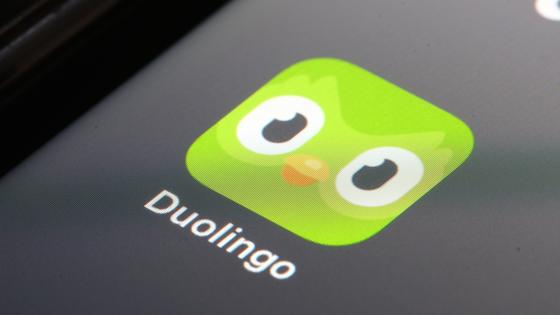Duolingo Launches Over One Hundred New Language Courses
The educational platform for learning foreign languages has developed 148 new programs using generative artificial intelligence.

Previously, Duolingo offered around 100 courses. These were developed over twelve years, while the new 148 programs were prepared within a year, according to the company's founder and CEO, Luis von Ahn.
In terms of content, the courses have changed very little. However, AI has made it possible to adapt all educational programs to 28 interface languages. For example, previously, English- or Spanish-speaking students had access to about 40 courses, while Arabic-speaking users had only ten. AI enabled the enhancement of programs for the most popular languages of study across all versions of the app-for example, if your native language is Hawaiian, Dutch, or Navajo. The eight most widely spoken and in-demand languages remain English, Spanish, French, German, Italian, Chinese, Japanese, and Korean.
The new AI-powered courses are geared toward beginner levels-A1 and A2-and include not only traditional lessons in grammar and vocabulary but also interactive features such as Stories and the DuRadio podcast. These features are designed to develop students' reading and listening comprehension skills. Materials for learners at level B1 and above will be added to the app in the near future.
The company previously stated that it plans to stop outsourcing tasks that can be performed by artificial intelligence. Duolingo aims to become the number one AI-driven company. According to founder Luis von Ahn, new positions within the company will only be opened in areas that cannot be automated. Moreover, AI literacy will be considered when hiring and promoting employees. Von Ahn's announcement sparked public backlash. Users expressed dissatisfaction with the replacement of staff by artificial intelligence. Learners also believe that the use of neural networks lowers the quality of language courses.
In addition to Duolingo, Google has also launched several AI-powered tools for learning foreign languages. As part of its experimental lab, it has introduced Tiny Lesson-a series of mini-lessons generated by the Gemini chatbot upon request; Slang Hang, which offers learners interactive AI-generated dialogues; and World Cam, a tool that recognizes real-world objects and then labels them in the target foreign language.












 £23 million allocated for the expansion of EdTech Testbed in the UK
£23 million allocated for the expansion of EdTech Testbed in the UK
 Tuskegee University launches Global Campus — a new online platform
Tuskegee University launches Global Campus — a new online platform
 Test: How Psychologically Mature Are You? Check Your Inner Foundation.
Test: How Psychologically Mature Are You? Check Your Inner Foundation.
 Test. Check Your Social Media Dependency Level!
Test. Check Your Social Media Dependency Level!
 Test: What Business is Right For You?
Test: What Business is Right For You?
 Test: How Prone Are You to Abusive Behavior as a Manager?
Test: How Prone Are You to Abusive Behavior as a Manager?
